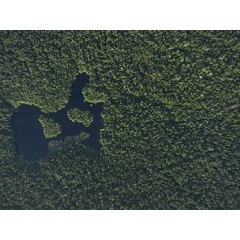WWF statement on WEF’s Global Risk Report 2022
Decision-makers must finally act on climate and nature concerns

The latest Global Risks Report from the World Economic Forum reveals how the top five risks facing the world over the coming decade are all environmental.
Climate action failure, extreme weather, biodiversity loss, natural resource crises and human environmental damage rank as the top risks over the next 5-10 years, according to the report, which is based on a survey of nearly 1,000 global experts and leaders from across business, governments and civil society.
Climate risks now dominate global concerns in both the short and long term as the world enters the third year of the pandemic. Infectious diseases are also identified in the top ten global risks by severity and as one of the top short-term risks in 2022.
Commenting on the publication of the Global Risks Report 2022, Marco Lambertini, Director General of WWF International, said:
“The latest Global Risks Report from the World Economic Forum reveals that businesses and policy makers are finally waking up to the very real risks posed by both climate change and biodiversity loss.
“This is the result of a new ‘eco-awakening’. And it is why news headlines and social media are routinely dominated by stories about wildfires, droughts, extreme weather, scarcity of resources, loss of wildlife and of course, the ongoing global pandemic.
“As the world’s leaders gear up for this year’s biodiversity talks in China, it is critical that they act on society’s concerns and finally connect the dots between climate change, the destruction of nature and our current production and consumption model. They must also move from responding to pandemics to preventing them by adopting a One Health approach that recognizes that the health of people is closely tied to the health of animals and the natural environment.
“We are finally beginning to understand that only by securing a stable climate and healthy natural world will we be able to build a safer, more prosperous and equitable future for humanity. Now it’s time to commit and to act.”
ENDS
- In May 2021, WWF commissioned the Economist Intelligence Unit (EIU) to conduct research on the public perception of nature loss. The research ‘An Eco-wakening: Measuring global awareness, engagement and action for nature’ highlights that public concern for nature loss is mounting, growing by 16% globally in the last 5 years.
( Press Release Image: https://photos.webwire.com/prmedia/6/283928/283928-1.jpg )
WebWireID283928
This news content was configured by WebWire editorial staff. Linking is permitted.
News Release Distribution and Press Release Distribution Services Provided by WebWire.